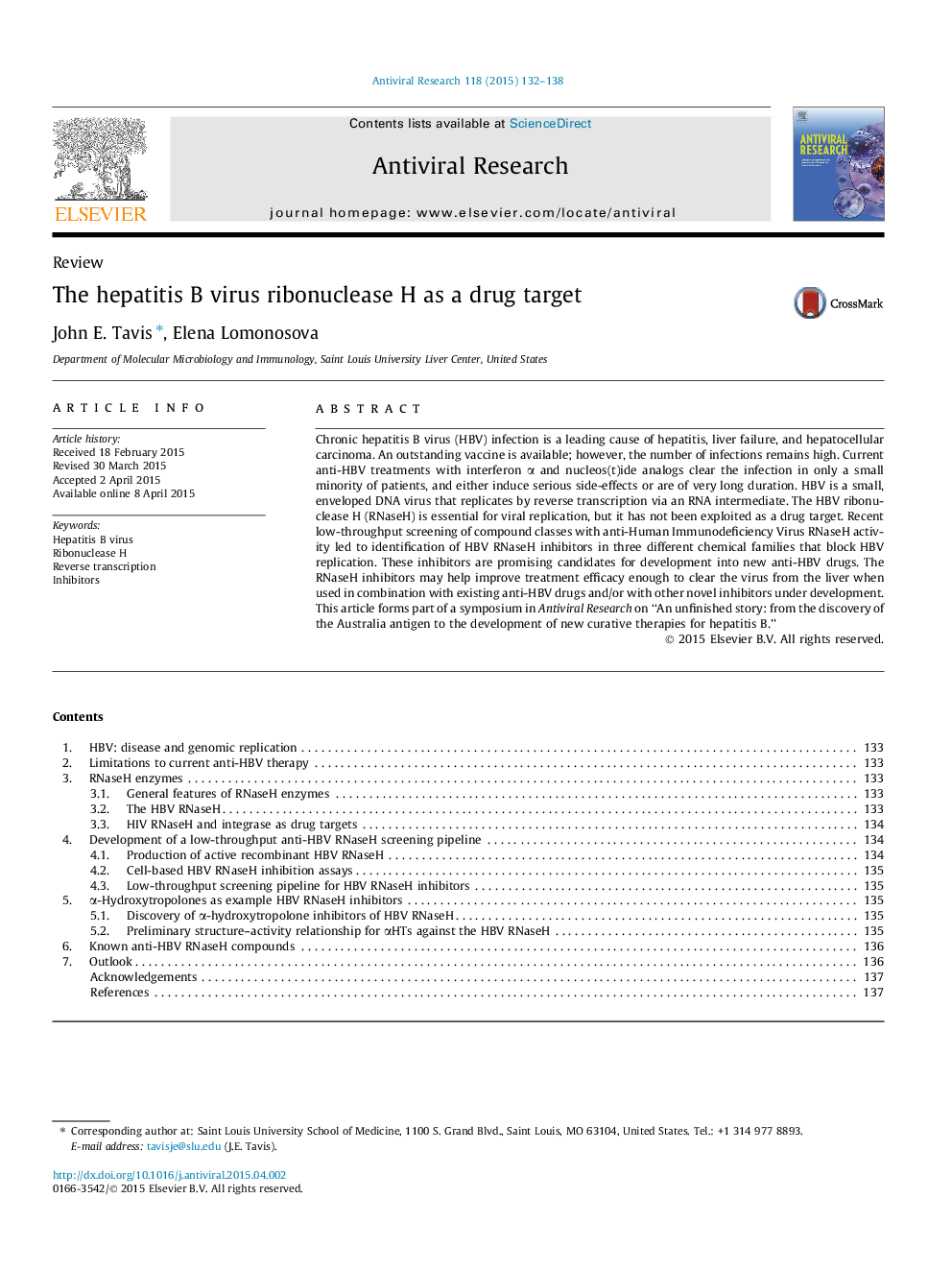| Article ID | Journal | Published Year | Pages | File Type |
|---|---|---|---|---|
| 2509832 | Antiviral Research | 2015 | 7 Pages |
•The HBV ribonuclease H is a promising but unexploited drug target.•Recent technical advances permit low-throughput screening for ribonuclease H inhibitors.•Some of the known HIV ribonuclease H inhibitors also inhibit HBV.•Combining ribonuclease H inhibitors with existing or novel drugs may significantly improve treatment efficacy for HBV.
Chronic hepatitis B virus (HBV) infection is a leading cause of hepatitis, liver failure, and hepatocellular carcinoma. An outstanding vaccine is available; however, the number of infections remains high. Current anti-HBV treatments with interferon α and nucleos(t)ide analogs clear the infection in only a small minority of patients, and either induce serious side-effects or are of very long duration. HBV is a small, enveloped DNA virus that replicates by reverse transcription via an RNA intermediate. The HBV ribonuclease H (RNaseH) is essential for viral replication, but it has not been exploited as a drug target. Recent low-throughput screening of compound classes with anti-Human Immunodeficiency Virus RNaseH activity led to identification of HBV RNaseH inhibitors in three different chemical families that block HBV replication. These inhibitors are promising candidates for development into new anti-HBV drugs. The RNaseH inhibitors may help improve treatment efficacy enough to clear the virus from the liver when used in combination with existing anti-HBV drugs and/or with other novel inhibitors under development. This article forms part of a symposium in Antiviral Research on “An unfinished story: from the discovery of the Australia antigen to the development of new curative therapies for hepatitis B.”
